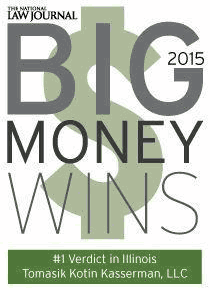SCOTUS says Insurance Companies Have a Right to be Reimbursed, FEHBA Preempts State Anti-Subrogation Laws
Justice Ruth Bader Ginsburg delivered the opinion in Coventry Health Care of Missouri, Inc. v. Nevils, one of the last Neil Gorsuch-less cases before the nation’s highest court. Writing for the majority, the Notorious RBG made it clear that when it comes to states prohibiting insurance companies from claiming the proceeds of personal injury settlements - federal law reigns supreme.
The Nevils case stemmed from a 2006 car accident, in which Jodie Nevils, a former federal employee, was injured. Per Nevil’s employment with the federal government, Nevils was enrolled in and insured under a Federal Employees Health Benefits Act (FEHBA) plan offered by Coventry Health Care of Missouri. Soon after filing suit, Nevils recovered a settlement award against the defendant driver. Nevils v. Group Health Plan, Inc., 418 S. W. 3d 451, 453 (Mo. 2014).
After the settlement, Coventry asserted a lien for $6,592.24 against part of the settlement proceeds to cover the medical bills it had paid. After initially repaying the lien, Nevils discovered that Missouri law did not permit subrogation or reimbursement in this context. Accordingly, Nevils filed a class action against Coventry in Missouri state court, alleging that Coventry had unlawfully obtained reimbursement.
At issue in the class action was whether FEHBA preempted Missouri’s anti-subrogation and anti-reimbursement laws. On one side you had Nevils, whose arguments were premised on Missouri law. On the other you had Coventry, (now part of the Connecticut based healthcare group Aetna), who asserted that FEHBA provisions overruled state law and made subrogation/reimbursement clauses in government employee benefit contracts enforceable. In relevant part, the provision at issue stated that “the terms of any contract under this chapter which relate to the nature, provision, or extent of coverage or benefits (including payments with respect to benefits) shall supersede and preempt any State or local law, or any regulation issued thereunder, which relates to health insurance or plans.” 5 U.S.C. § 8902(m) (11)
In the end, SCOTUS agreed with Coventry, holding that Missouri had no authority to regulate the subrogation and reimbursement provisions in the contracts. Because the contractual provisions at issue granted the insurance carriers rights to payments in exchange for the benefits they provided, SCOTUS stated that providers clearly fell within the language of the Federal statute preempting State Law.
As an alternative in his brief, Nevils had also argued that any finding by the Supreme Court that §8902(m)(1) covers subrogation and reimbursement clauses would violate the Supremacy Clause by assigning preemptive effect to the terms of a contract. Ginsburg disagreed, stating that “the statute, not a contract, strips state law of its force.” The judgment of the Supreme Court of Missouri was reversed and remanded for further proceedings. With the newly confirmed Supreme Court Justice Gorsuch still waiting to weigh in on his first case, Justice Thomas issued a concurring opinion.
The laws governing insurance subrogation and reimbursement can be complicated. At Tomasik Kotin Kasserman, we have decades of experience dealing with insurance companies, hospital bills, and healthcare plans. In order to ensure our clients receive full compensation, we strive to fully appreciate and understand the ever-changing laws governing our Nation’s insurance providers.

 312-605-8800
312-605-8800




 312-605-8808
312-605-8808






